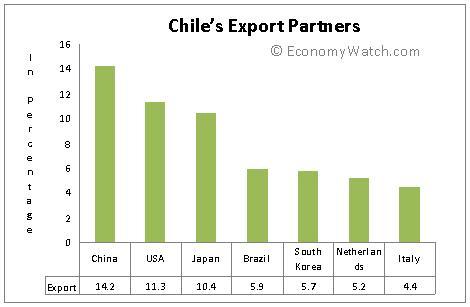Pangkarra Foods – Case Study Help
Executive Summary
This paper discusses about the expansion of Pangkarra Foods based in South Australia in Chile. Pangkarra Foods is an Australian based medium size enterprise which produces healthier wholegrain pasta, chickpeas and puffs. Having a strong presence in Australian market, winning several awards and already exporting to South Asia, the company is looking for further expansion. Chile is a good market where its products can be valued. Although a tough competition already exist, the quality products and human resources help the company gain competitive advantage and do well in Chile. Moreover, Chile has a stable democratic government with solid business practices which further helps the company to easily enter the market. The youth in Chile is inclined towards healthier snack option which can be fulfilled by Pangkarra. The export strategies involves direct exporting via a distributor which will involve the established supermarkets in Chile. Transportation would be done via seaport. However, above all, the cultural differences shall be taken care of. Where Chileans tend to focus on relationships and strong networks, Australia too is inclined towards mateship but low as compared to Chileans. Chileans presentation style involves an emotional aspect along with facts and figures while humor is a part of Australian while presenting their ideas. Moreover, Chileans consider a leader very strong and follow them as they say while Australians connect with their subordinates and they are a part of decision making. All these aspects shall be properly taken into account before making negotiations.

Introduction
Globalization of Small and Medium Enterprises (SMEs) has gained a lot of attentional internationally in the past few years. A small-medium sized firm can be defined to have a maximum of 200 full-time employees (ABS, 2001). The reduction of barriers in the global economy has provided opportunities for emerging markets which can face high competition from the already established international competitors. Thus, internationalization can become a tool of growth, survival and sustainability when globalized (Alon et al., 2009). This paper, therefore analyses the export readiness of Pangkarra Foods, a medium sized company operating in South Australia to Chile. It will evaluate how the company will export, the strategies and the modes to export and what difficulties it might have to face.
Company Background
Pangkarra Foods is a family owned and operated business started in 2011. Having 33 employees with a revenue of around 6.9M, the company is based in Clare Valley in South Australia and the family business is being continued by Jim and Katherine Maitland (Zoom Info, 2019). The company deals in a range of premium products which include wholegrain dry pasta, wholegrain lavosh, stone milled wholegrain durum flour, gluten-free pasta, chickpea puffs and cooked and roasted legumes (Pangkarra, 2019). Having a great presence at IGAs, gourmet food shops, Foodlands and online, the entire range of pulses has managed to grab 4.5 health star rating on 5 by Australian Federal Government’s Health Star Rating System (AFN, 2016). The paddock-to-plate approach and sustainable farming methods are quite popular and has helped the company to sell across Australia and export to south-east Asia and grab Telstra Small Business Award in 2014 (Agribusines,s 2016). Additionally, the company is listed in Australia’s Top 100 Food & Drink companies as analysts agree they have a strategic advantage (FDB, 2015).
Export Readiness of Pangkarra Foods
Not all firms succeed in the international market and without preparedness, firms shall not go for exporting. Export readiness is necessary to analyze and it is mainly related to three key areas; resources, competitive advantage and objectives. Resources and capabilities help in gaining competitive advantage. The physical and financial resources along with innovative processes helps a firm promote value creation (Ferreira and Simoes, 2016). Talking about Pangkarra, the quality has been controlled at every step in the supply chain. Organic fertilizers along with sustainable practices is done to ensure organic farming. Conventional milling separates the grains ensuring nutritional value in the wholegrain. Being procedures completely natural, they are high in protein and fiber with low glycemic index (Agribusiness, 2016). Thus quality of the produced along with the environmental standards can help it in gaining competitive advantage.
Competing on price has rather become difficult for the company as paddock-to-plate approach to food production leads to increase in supply-chain costs but products resonate with people looking for healthier options. Moreover, it started exporting to south-east Asia in 2015 (Agribusiness, 2016). The importance of ‘wholegrain’ along with great marketing efforts and PR has made recognition and sales of the brand. Along with this, the whole production process is done by them including manufacturing, packaging and people and everything originating there (Beerenberg, 2019). Thus the companies’ resources are adequate to meet demands of the existing market. This can help them to further grow as their goal is to look for growth of the business and make sure it is sustainable for their children (Beerenberg, 2019).
The wholegrain goodness and new Gluten Free products can help people provide nutritional value. Moreover, the pulses are an excellent option with those having gluten sensitivities, nut allergies and look for a convenient snack (Agribusiness, 2016). The quality, resources, capabilities and the goals show that the firm can export in Chile gaining a competitive advantage. However, it is important to understand the competitors also. Chile exports most of its food and beverages from the US. There are many competitors which include Walmart Chile under the Lider Express, Lider and Ekono brands. Cencosud under Santa Isabel and Jumbo brands, SMU under Unimarc brand and Tottus are the competitors. However, the private label brands have around 10% of revenues in Chile. They have expanded with food product categories by increasing their variety and presence (Herrera, 2019). This shall be adopted by Pangkarra and further the resources and capabilities will help them gain competitive advantage.
PESTLE Analysis
The acronym PESTLE stands for Political, Economic, Socio-cultural, Technological, Legal and Environmental which is strategic planning tool. PESTLE helps in allowing managers to identify and take care of these macro-economic variables for the development of business (Alanzi, 2018). This section analyses Chile as the prospective market for the Pangkarra Foods.
The political-legal environment of Chile is very stable. Chile is a prosperous, stable and highly ranked country in international indices relating to transparency, economic freedom and competitiveness. It has stable democratic government, solid business practices and zero tariffs. Moreover, it performs well in terms of advanced financial market development, openness to foreign trade, low levels of corruption and low inflation (Export.gov, 2019). Additionally, nutritional labeling law has been mandatory. Economic environment shows a strong signal towards food consumption. With a population of 18.8 million and a GDP of US$290bn, the country has free trade agreements with Australia which allows companies easily to trade in Chile. The middle class is growing, hence educated Chileans with increased disposable income could be witnessed. Moreover, Santiago is most densely populated with 7.5bn citizens where most food consumption occurs as disposable income is high (Herrera, 2019). The healthy food and beverage amarket has reached $3.0bn annually with an annual growth of 12.5% and represents 19% of all retail food sales (Gonzalez, 2018).
Unlock the power of Pestel Analysis with Assignmentstudio’s expert assistance. Our customized Pestel Analysis Assignment Help equips students with the tools and knowledge to analyze business environments effectively and excel in their academic pursuits.
Export Planning Guidelines and Strategies
Export Entry Strategy
The mode of export entry chosen for Pangkarra is direct exporting though a local distributor. This is so as direct exporting will eliminate intermediaries thus allowing direct marketing and profit maximization (Hill, 2013). This is appropriate for the company as the cost of the product is high due to high quality and involving intermediaries will save additional costs. Hence, major hypermarkets and supermarkets like Censoud, SMU and Tottus will be contacted to display Pangkarra products and maximize sales as these markets have good revenue (Herrera, 2019).

Hire Expert Writers at
Affordable Price
WhatsApp
Get Assignment Help



